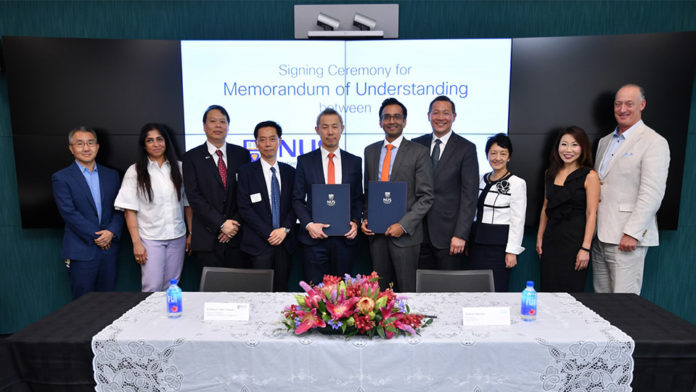National University of Singapore (NUS) and Cisco have agreed to collaborate on innovation and research in key emerging technologies, with the aim to boost Singapore’s knowledge-based innovation-driven digital economy.
Based on a memorandum of understanding they signed, both NUS and Cisco will promote joint research and development activities in the areas of data analytics, Internet of Things, automation, cybersecurity, artificial intelligence, machine learning, and software defined networking.
The collaboration will see the two partners identify joint research projects and sponsored chairs, as well as exchange scientific, academic and technical information. The research projects will focus on key areas and sectors such as healthcare, manufacturing, customer experience and Smart Nation.
In addition, they will make use of the NUS Kent Ridge campus as a living laboratory for the co-creation, exploration and evaluation of innovative ideas, technology and scenarios in real-life use cases.
These technologies are key not just to successful digital transformation of businesses, but also to efforts of governments across the world as they look to digital adoption to improve citizen services.
“As we move towards becoming a Smart Nation, future growth of the digital economy will be driven in a large part by building local innovation capabilities,” said Irving Tan, SVP and chief of operations at Cisco. “Our global expertise coupled with NUS’ understanding of the local landscape and its research capabilities, will help us develop technologies that contribute to the long-term growth of the country.”
Professor Chen Tsuhan, deputy president for research and technology at NUS, said digital transformation is continually transforming all aspects of Singaporean’s lives and presents a plethora of opportunities.
Singapore’s Smart Nation initiative focuses on, first, digitalising industries to increase business efficacy, and create new jobs and opportunities.
Second, using data, connectivity and computing decisively to transform the way citizens and businesses are served, and the way public officers are enabled to contribute fully to their work.
And third, digital inclusion to ensure all Singaporeans have access to technology and are equipped with the skills to use technology safely and confidently.
















